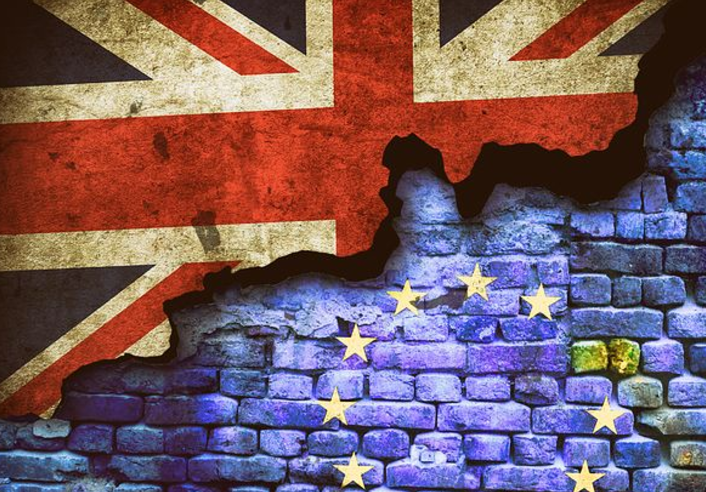Lighten the Darkness
How dark money is subverting democracy in the UK.
By George Monbiot. Published in the Guardian 17th May 2017 (Dark money is pushing democracy in the UK over the edge)
 How is this acceptable? A multimillionaire City asset manager has pledged to spend up to £700,000 on ousting Labour MPs who campaigned against Brexit. Jeremy Hosking will use his money to ensure that there is as little parliamentary opposition to a hard Brexit as possible. Why should multimillionaires be allowed to try to buy political results?
How is this acceptable? A multimillionaire City asset manager has pledged to spend up to £700,000 on ousting Labour MPs who campaigned against Brexit. Jeremy Hosking will use his money to ensure that there is as little parliamentary opposition to a hard Brexit as possible. Why should multimillionaires be allowed to try to buy political results?
Allowed? That’s too soft a word. It is enabled by our pathetic, antiquated and anti-democratic rules on political spending. Hosking claims he wants to secure “the sovereign future of this independent-minded democracy”. But there is no greater threat to sovereignty, independence or democracy than the power money wields over our politics.
There are three categories of concern here. The first is transparent political funding, such as Hosking’s. Then there is opaque funding, that the Electoral Commission has so far failed to prevent: a shocking example has been uncovered by Peter Geoghegan and Adam Ramsay of openDemocracy.
 We already know that a vast payment was made by Northern Ireland’s Democratic Unionist party (DUP) for a newspaper advertisement urging people to vote for Brexit. Remarkably, this ad was not circulated in Northern Ireland, but only in England and Scotland.
We already know that a vast payment was made by Northern Ireland’s Democratic Unionist party (DUP) for a newspaper advertisement urging people to vote for Brexit. Remarkably, this ad was not circulated in Northern Ireland, but only in England and Scotland.
This might suggest that someone was making use of Northern Ireland’s secrecy regime. Political donations there remain hidden from view. Funders wishing to disguise their identities can use Northern Ireland as a back channel into UK politics. After sustained pressure, the DUP revealed that the money came from a donation of £425,622, passed through an organisation called the Constitutional Research Council.
But the original source remains a mystery. Though electoral law in Great Britain states that “a donation of more than £500 cannot be accepted … if the donation is from a source that cannot be identified”, the DUP claims that it doesn’t need to know who provided this money. All we know about the Constitutional Research Council is that it’s run by a man called Richard Cook, who lives in a small house outside Glasgow. He seems unlikely to have been the original source.
What else do we know about him? OpenDemocracy discovered that in 2013 he helped found a company called Five Star Investments, 75% of which was owned by Prince Nawwaf al-Saud, former head of Saudi Arabian intelligence. Nawwaf’s son is currently the Saudi ambassador to the UK.
There is currently no known connection between these facts, and Cook has denied any foreign funding for the CRC. But he has not yet answered calls from openDemocracy or the Guardian. Though the Electoral Commission was asked 11 months ago to investigate, it has done nothing.
This story resonates with the deeply troubling revelations by Carole Cadwalladr in the Observer, which suggest that the US billionaire Robert Mercer may have played a questionable role in our EU referendum. Thanks to the Observer, the Electoral Commission is investigating. But if it discovers any breaches of the rules, the penalties are feeble. The monumental decision this country has taken, which may have been unduly influenced by the forces Cadwalladr describes, will not be reversed.
The third issue is political funding that operates in a different sphere. It’s not illegal, it’s worse than that: there are no effective rules of any kind. This is the use of dark money that seeks not to influence elections directly, but to change the broader political landscape. Dark money is funding used, without public knowledge, by front groups.
There are various ways in which it is spent. One of them is “astroturfing”: the creation of fake grassroots movements. Pioneered by the tobacco companies, this later became a crucial strategy for fossil fuel companies trying to prevent action on climate change, and biotech firms trying to get their products on the market. It was a major component of the Tea Party movement in the United States, whose real members were coordinated by a group called Americans for Prosperity, founded by the Koch brothers.
Another outlet for dark money is the organisations that call themselves thinktanks, but look to me like covertly funded lobbyists. The less transparent they are, the greater their presence in the media.
The research group Transparify ranks these “thinktanks” by their openness about their funding. The Institute of Economic Affairs (IEA), the Adam Smith Institute and Policy Exchange, for example, are rated as “highly opaque”: they refuse to reveal any information about who sponsors them. But they are all over the BBC – the Today programme , Question Time and the rest – and other media.
 The industry whose funding we know most about, thanks to a legal settlement that forced open its archives, is tobacco. We now know, for example, that the IEA has been sponsored by tobacco companies since 1963. It has received regular payments from British American Tobacco, Imperial Tobacco, Japan Tobacco International and Philip Morris International, which has described the institute as one of the groups that would “establish an echo chamber for [Philip Morris] messages”.
The industry whose funding we know most about, thanks to a legal settlement that forced open its archives, is tobacco. We now know, for example, that the IEA has been sponsored by tobacco companies since 1963. It has received regular payments from British American Tobacco, Imperial Tobacco, Japan Tobacco International and Philip Morris International, which has described the institute as one of the groups that would “establish an echo chamber for [Philip Morris] messages”.
Last week the IEA published a report inveighing against the UK’s smoking ban and tobacco packaging law. This was picked up across the media, but with never a word about the institute’s funding. Apart from the BBC’s editorial guidelines, which are routinely flouted, there are no rules of any kind to prevent or reveal such conflicts of interest.
Is this democracy? Is this sovereignty? No. It’s the replacement of informed political choice with an onslaught of corporate propaganda and fake facts, which, as we don’t have 100 years between elections to check and refute, we have little chance of resisting.
Why has there been no effective action on climate change? Why are we choking on air pollution? Why is the junk food industry able to exploit our children? Because governments and their agencies have rolled over and let such people make a mockery of informed consent.
Now the whole democratic system is sliding, and the Electoral Commission is neither equipped nor willing to stop it. There’s an urgent, unmet need for new laws to defend democracy. [my emphasis]
****
See also:
Here are a few articles discussing media manipulation and/or Robert Mercer. I suspect we see a lot of material from people who are either part of a manipulative network or who have been "touched" by the rhetoric and unable to be objective. What do you think?
THE RECLUSIVE HEDGE-FUND TYCOON BEHIND THE TRUMP PRESIDENCY (New Yorker)
Last month, when President Donald Trump toured a Boeing aircraft plant in North Charleston, South Carolina, he saw a familiar face in the crowd that greeted him: Patrick Caddell, a former Democratic political operative and pollster who, for forty-five years, has been prodding insurgent Presidential candidates to attack the Washington establishment. Caddell, who lives in Charleston, is perhaps best known for helping Jimmy Carter win the 1976 Presidential race. He is also remembered for having collaborated with his friend Warren Beatty on the 1998 satire “Bulworth.” In that film, a kamikaze candidate abandons the usual talking points and excoriates both the major political parties and the media; voters love his unconventionality, and he becomes improbably popular. If the plot sounds familiar, there’s a reason: in recent years, Caddell has offered political advice to Trump. He has not worked directly for the President, but at least as far back as 2013 he has been a contractor for one of Trump’s biggest financial backers: Robert Mercer, a reclusive Long Island hedge-fund manager, who has become a major force behind the Trump Presidency…
 Robert Mercer: the big data billionaire waging war on mainstream media (Guardian)
Robert Mercer: the big data billionaire waging war on mainstream media (Guardian)
Just over a week ago, Donald Trump gathered members of the world’s press before him and told them they were liars. “The press, honestly, is out of control,” he said. “The public doesn’t believe you any more.” CNN was described as “very fake news… story after story is bad”. The BBC was “another beauty”.
That night I did two things. First, I typed “Trump” in the search box of Twitter. My feed was reporting that he was crazy, a lunatic, a raving madman. But that wasn’t how it was playing out elsewhere. The results produced a stream of “Go Donald!!!!”, and “You show ’em!!!” There were star-spangled banner emojis and thumbs-up emojis and clips of Trump laying into the “FAKE news MSM liars!”
Trump had spoken, and his audience had heard him. Then I did what I’ve been doing for two and a half months now. I Googled “mainstream media is…” And there it was. Google’s autocomplete suggestions: “mainstream media is… dead, dying, fake news, fake, finished”. Is it dead, I wonder? Has FAKE news won? Are we now the FAKE news? Is the mainstream media – we, us, I – dying?
On March 2, a disturbing report hit the desks of U.S. counterintelligence officials in Washington. For months, American spy hunters had scrambled to uncover details of Russia's influence operation against the 2016 presidential election. In offices in both D.C. and suburban Virginia, they had created massive wall charts to track the different players in Russia's multipronged scheme. But the report in early March was something new.
It described how Russia had already moved on from the rudimentary email hacks against politicians it had used in 2016. Now the Russians were running a more sophisticated hack on Twitter. The report said the Russians had sent expertly tailored messages carrying malware to more than 10,000 Twitter users in the Defense Department. Depending on the interests of the targets, the messages offered links to stories on recent sporting events or the Oscars, which had taken place the previous weekend. When clicked, the links took users to a Russian-controlled server that downloaded a program allowing Moscow's hackers to take control of the victim's phone or computer–and Twitter account.
“This is a propaganda machine. It’s targeting people individually to recruit them to an idea. It’s a level of social engineering that I’ve never seen before. They’re capturing people and then keeping them on an emotional leash and never letting them go,” said professor Jonathan Albright.
Albright, an assistant professor and data scientist at Elon University, started digging into fake news sites after Donald Trump was elected president. Through extensive research and interviews with Albright and other key experts in the field, including Samuel Woolley, Head of Research at Oxford University’s Computational Propaganda Project, and Martin Moore, Director of the Centre for the Study of Media, Communication and Power at Kings College, it became clear to Scout that this phenomenon was about much more than just a few fake news stories. It was a piece of a much bigger and darker puzzle — a Weaponized AI Propaganda Machine being used to manipulate our opinions and behavior to advance specific political agendas.



